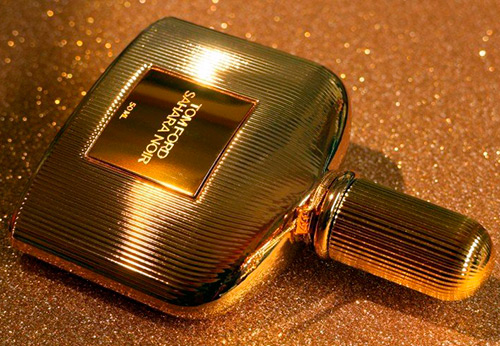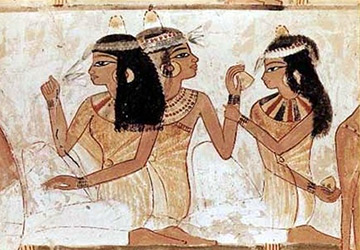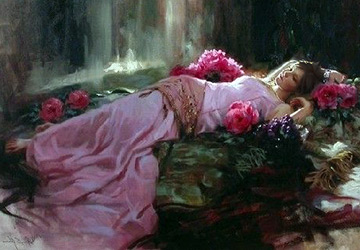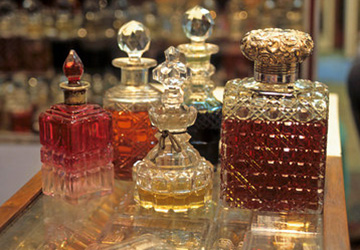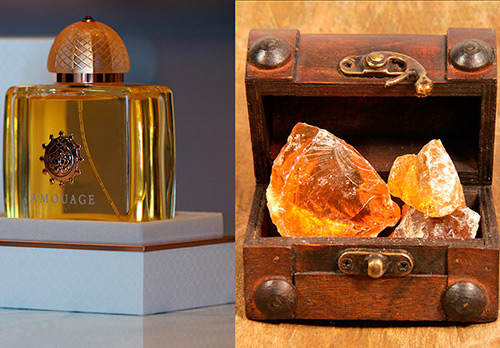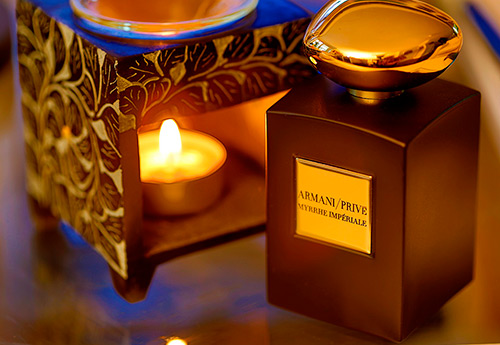Perfumery
The history of perfumery - arabic perfumery
Where the ancient art of perfumery first originated is hidden from us in the mists of time. Some historians say that its origins are in Mesopotamiaothers argue that it happened in Arabia, which has long been called the "land of incense".
The very word "perfumery" (per - through, fumum - smoke) says that the first incense for humans were aromatic resins and wood that were burned. Then it follows that, of course, it was in the East, because it was here that myrrh, incense and many other resins and wood were mined for a long time. We will not go into details of which country should be considered the birthplace of perfumery. Let's talk about perfumery of the Middle East, about Arabian perfumery.
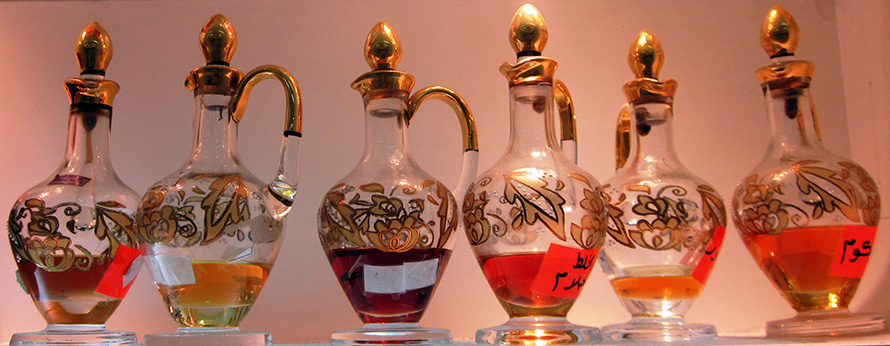
"Who knows the edge where the sky is blue
Cloudless, like young happiness,
Where the cedar rustles and the grapes twist,
Where is the breeze that carries the scent
Drowning in the air under the load,
In all its glory where the rose blooms
Where olive and lemon are sweet
And the meadow is always dotted with flowers ...
That edge is the East, that is the side of the sun. "
Byron.
The fall Roman Empire led to the decline of the aesthetic heritage of antiquity. In the era of medieval castles in Europe, there was an alienation from water as a means of hygiene. Gradually, people began to forget the worship of incense by the Romans and Greeks. And the East at the same time achieved great success in the field of perfumery.
At the very end of the 11th century, the crusades began, and together with the crusaders, the culture of the East penetrated into Europe. The Europeans, as it were, were rediscovering fragrant incense and essential oils. What the ancient Romans and Greeks were in awe of returned and was perceived as a discovery. People learned about the need for water as a hygiene, about its healing power, admired the luxury and perfection of the East. But there was something to admire. At a time when the Europeans rejected something, and what they forgot, the East was developing ...
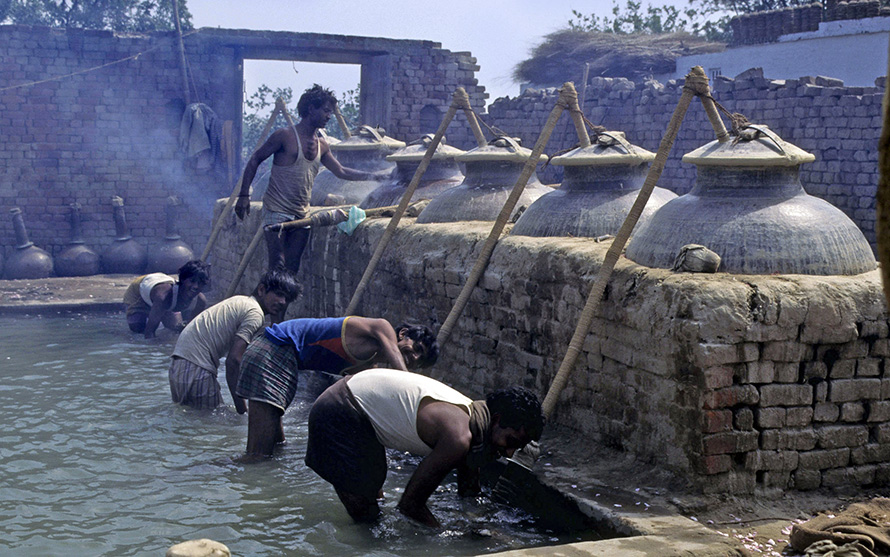
Distillation of plant substances was discovered - the history of perfumery names the name of the one who first carried out the distillation of rose petals. He was the great healer of the X-XI centuries Avicenna, whose medical works are still used. And then Arab perfumery, thanks to him, began to flourish. He was the first who began to study chemical processes and was able to apply them in practice.
During his 57 years, he managed to write many books in which he outlined the healing power of many plants, taught how to heal many diseases, discovered a way to obtain aromatic and healing elements from plants and flowers using distillation. After all, all the aromas, treasures of flowers, are beautiful, but short-lived, and therefore they could not be taken out of Arabia.
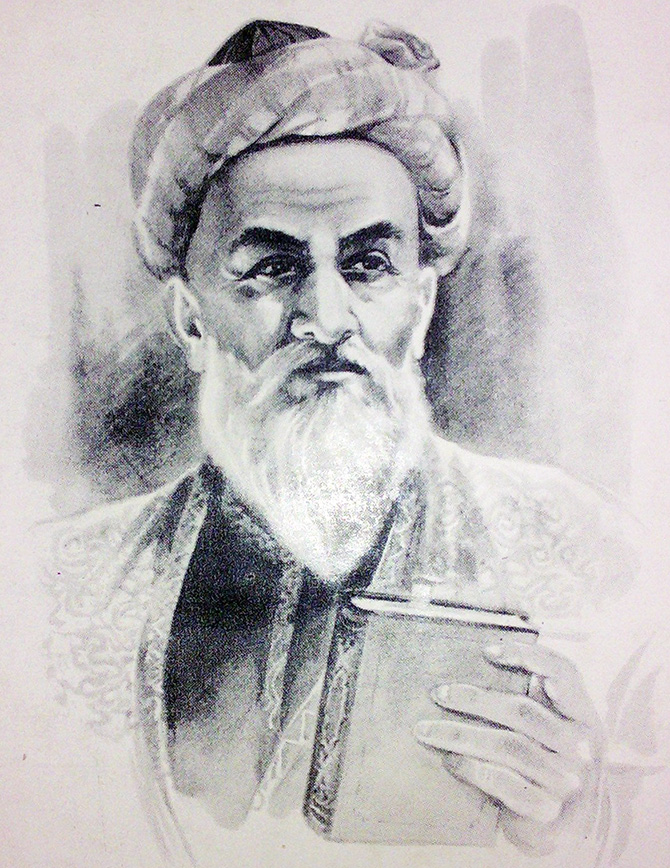
Thanks to distillation, the East became the center and source of essential oils. In the 10th century in Arabia, ethyl alcohol was obtained from wine. It was obtained by fermenting fruit fruits, but the taste of the raw material from which the wine was made remained. When distillation was invented, it was possible to obtain 90 - 96% alcohol - pure and transparent, and odorless. But who and exactly when he got pure alcohol is hard to say. Time and place fluctuates from the 11th century in Arabia to the 17th century in France.
The Arabs and Persians became incomparable connoisseurs of aromatic substances, but their favorite scent was the scent of the rose. Modern Arab perfumers to this day believe that the highest perfumery cannot exist without the scent of a rose. The scent of a rose is multifaceted, each type of rose has its own aroma, with its own shades and smells.
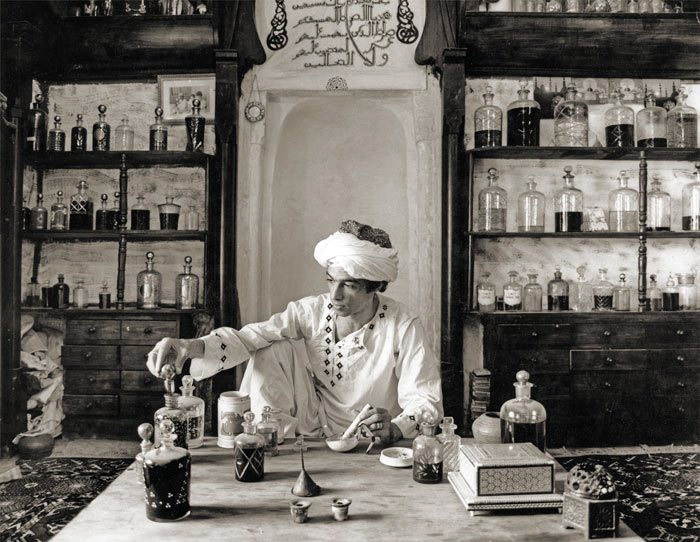
The rose was sung in poetry, according to one of the poets, the rose is a gift from Allah himself. Persia was a land of legends and songs about the rose. The famous Hafiz especially sang the praises of the rose; he was even buried in a place where there was a vast rose garden.
“I went out at dawn to pick roses in the garden,
And the trill of the nightingale heard the sequence;
Unhappy, like me, sick with love for a rose,
And on the lawn he mourned the misfortune. "
Hafiz was a great connoisseur of flowers and fragrances, and constantly sang them in his poems, comparing his beloved woman with a rose.
“So beautiful is your whole appearance - like a rose petal
The camp is like a cypress. How wonderful you are!
The garden of my soul is filled with your beauty; yours
The curls smell like jasmine. How wonderful you are! "
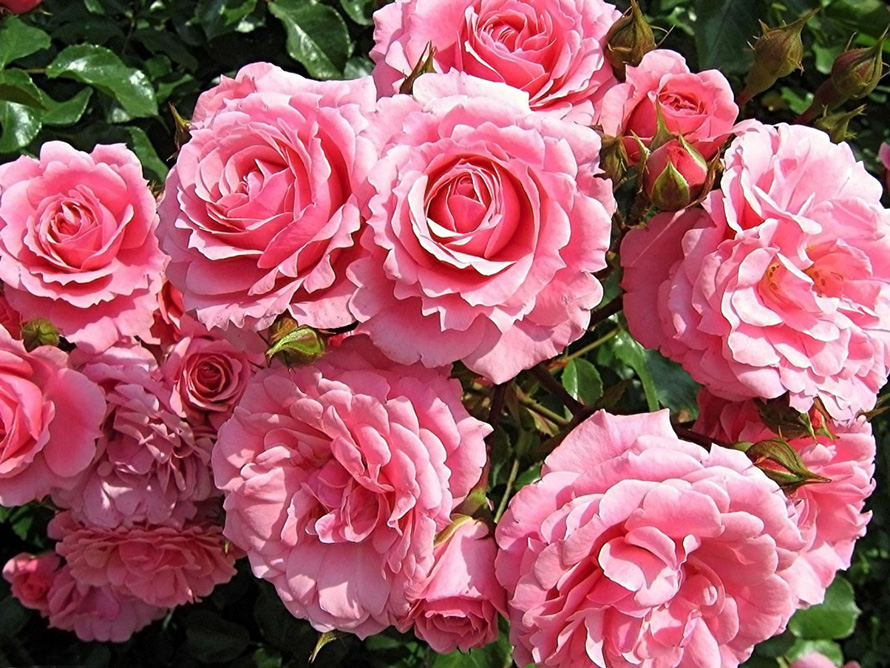
Persia was named by the poets "Gulistan" - a rose garden. "Gul" means rose, and this word for the Persian was the most charming of the words. Roses were everywhere, they were grown in the luxurious gardens of the sultans, the gardens and all the rooms, baths and graves were overflowing with them, not a single celebration was complete without them. It was impossible to imagine the life of a Muslim without rose water. Dwellings and clothes were washed with rose water, it was also used in ritual ablutions, used in medicine. And the famous Muslim commander during the crusades Saladin, after defeating the crusaders, before entering the Omar Mosque in Jerusalem, ordered to wash the floor, walls and even the rocks on which it was built with rose water.
Damascus became the center for growing roses, hence the name of one of the most fragrant and beautiful roses - Damascus rose.
Rose essential oil has become an essential ingredient in perfumery. It was with the rose that Avicenna conducted his first distillation experiment. Rose water began to be produced in large quantities. In addition to rose, the favorite ingredients were myrrh and incense, amber and musk with the addition of oriental resins, sweet vanilla or sandalwood. The addition of rose, jasmine, orange blossom and woody notes of sandalwood and cedar, vetiver were the keys to creating luxurious fragrances.
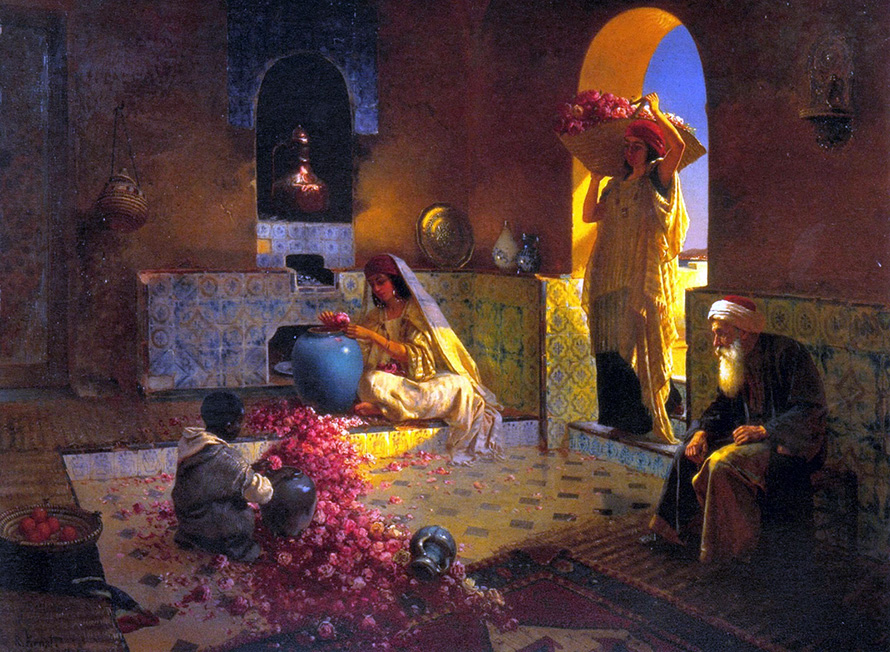
Spicy scents such as pepper, cloves, woody and animal tones have also been used in Arabian perfumery. At the same time, aromatic incense burners came into use, fanning those present with fragrant smoke. Incense burners were made of wood, and inside they were trimmed with metal, and covered with a wicker lid on top. For the sensual East, the love of rich smells is much stronger than that of Europeans.
Even the construction of mosques was accompanied by the use of building materials in which a large amount of musk was dissolved. There was a constant fragrance from such buildings, especially when the sun's rays fell on them. The hotter the climate, the stronger the love for strong smells. It is not easy for Europeans to understand this, but for some people to endure such a fragrance.
From century to century there were caravans, ships sailed from the East ... In small luxurious bottles, they carried special treasures, aromas created not only by the art of perfumers, but also by nature itself. They combined the sun, earth, human labor and the mystery of plants.
The East, with its unprecedented luxury that boggled the imagination, mastered new ways of obtaining essential oils, balms and other precious components, improving the art of perfumery, creating luxurious bottles decorated with gold and precious stones. In the gardens and harems, the fragrance of aromas delighted the soul and body, filling the air with its captivating scent, and the light wind from the sea either softened or intensified this smell, filling all the pores of the body, all the senses with the aroma of seduction and charm.
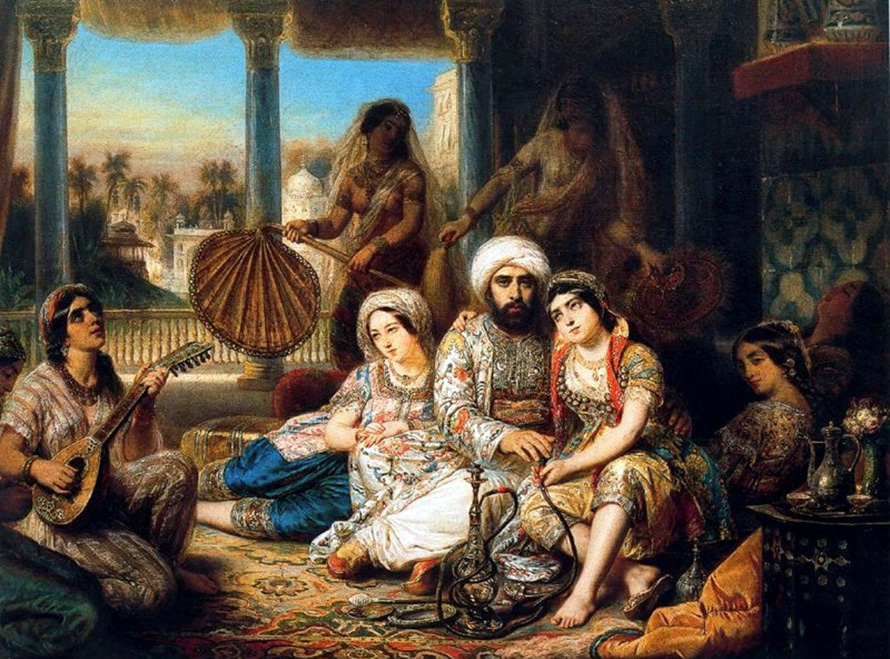
Comments and Reviews
Add a comment
Rating news
Shades of clothing that make women look younger
What shades of hair make women younger: rules and photos
Funny wedding dresses - photos and ideas
12 most expensive down jackets for the winter
How to look 25 at 40: tips from supermodels
Beautiful schoolgirls
Anti-aging haircuts and hairstyles for women
Fashionable skirts for autumn and winter
Fashionable women's trousers for the cold season
Fashionable and stylish sandals for summer 2024
Spring-summer 2024
 Fashionable dresses and tops with thin spaghetti straps
Fashionable dresses and tops with thin spaghetti straps
 Bandana tops: how to wear stylishly and beautifully
Bandana tops: how to wear stylishly and beautifully
 How to put together the perfect men's wardrobe for the summer
How to put together the perfect men's wardrobe for the summer
 Trendy shorts for spring-summer 2024
Trendy shorts for spring-summer 2024
 Fashionable skirts for spring-summer 2024: a guide to online shopping
Fashionable skirts for spring-summer 2024: a guide to online shopping
 The most fashionable dresses spring-summer 2024: styles and colors
The most fashionable dresses spring-summer 2024: styles and colors
 Fashionable total look 2024: image ideas and trends
Fashionable total look 2024: image ideas and trends
